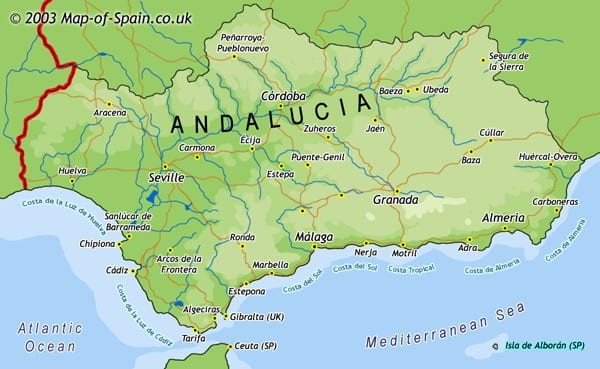 POVERTY rates in Andalucia are the same as they were at the height of the crisis.
POVERTY rates in Andalucia are the same as they were at the height of the crisis.
In Sevilla, 40% of children are still living in poverty, despite it being one of the most visited tourism hotspots in the country.
Mariano Perez de Ayala, regional head the Catholic Agency for International Aid and Development, told Euronews that austerity policies and labour law reforms have only made things worse in Spain.
“Our system doesn’t smooth out inequalities in times of economic boom, and it destroys a lot of jobs and deepens inequalities in times of crisis,” he said.
“The crisis has reversed many social achievements in Europe. We have seen the rise of a neo-liberal model that undermines the social welfare system. Labour reforms that have been implemented according to this model have been detrimental to the social achievements of recent years.”

Mariano claims they are part of the millions of Spaniards who are not seeing the benefits from the country’s impressive recovery.
Sevilla’s Polígono Sur, known as ‘the 3,000 homes’, is still one of the poorest towns in Spain.
Hundreds of children rely on free meals from the organisation as part of a programme launched nationwide three years ago by the NGO Educo.
“Requests for our summer meals have gone up by 40% compared to last year,” said Fernando Rodríguez of Educo Andalucia.
“The economic crisis has led to budget cuts in social funding, education, health. That has led to many families trying to cut down on food spending. Nobody is going hungry, but there is malnutrition in Spain.”
Sevilla has become Spain’s fifth poorest city.
“New families have arrived, people who have lost their jobs, or who work in very precarious conditions and no longer have any social benefits. Our main concern is that this kind of poverty is turning into a chronic phenomenon,” says Javier Cuenca, head of Save the Children Andalucia.
It comes as Spain’s economic growth is outpacing its European neighbours.
Just last week the IMF upgraded its forecast for Spain’s growth to 3.2% this year, far higher than the UK.











Spain is still living off pensions but the Spanish government will soon have to start reigning on on pension payouts, this is when the real “fun” & games will kick in. Spain´s debt has increased by 60% in just 10 years? The AVE was 70€ billion, that is just 4% of GDP so just where has the other 56% of Spanish debt been spent in the last 10 years? When you see the quality of job on offer in Spain, it makes you think how the Spanish survive. Many have hoarded away money earnt with the colossal building infrastructures (60´s, 70´s, 80´s, 90´s & 00) on the costas but there now is generally very little construction jobs to be found even here.